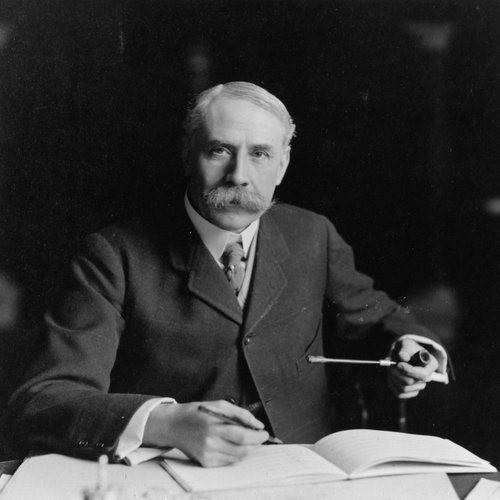
The English composer, Edward Elgar, grew up in the small village of his birth outside the city of Worcester. Though of modest means, his parents encouraged their children to play a variety of instruments. Of their seven children Edward was the third. Their father was a piano tuner by trade, though he was also the local church organist. Their mother was a devout Roman Catholic and, though Catholicism was anathema to most Brits, insisted on bringing all the children up in her faith.
William Elgar, the composer's father, gave Edward both violin and piano lessons but, as far as composition was concerned, the boy was essentially self-taught. Consequently, as a young man, Elgar scraped a living as a poster child for the starving artist.
1899 was the year that Elgar's fortunes took a turn for the better. With the encouragement of Alice, his wife, and with the help of his friend August Jaeger, the work we are to hear today was launched. Novello was, in those days, London's premier musical publishing company and Jaeger worked for them, which all supports the old saying that it's more important who you know than what you know.
The Enigma Variations consists of 14 variations on an original theme. Elgar dedicated the composition to "My friends pictured within." Following its first performance in London in 1899, the work became popular almost immediately and established Elgar's international reputation. By naming the theme, "Enigma," the composer opened a Pandora's Box of continuing speculation as to its meaning. The most popular theory is that the work contains a hidden melody. We'll probably never know the answer as Elgar died in 1934 without any further explanation.
Program note by: Ian A. Fraser